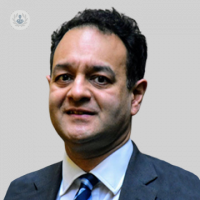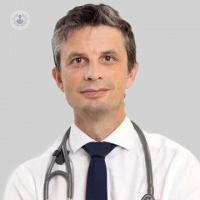Respiratory failure
Professor Suveer Singh - Pulmonology & respiratory medicine
Created on: 05-18-2016
Updated on: 01-17-2024
Edited by: Kate Forristal
What is respiratory failure?
Respiratory failure is a condition that affects the respiratory system when it doesn’t provide enough oxygen to the blood or when the lungs can’t properly eliminate carbon dioxide. It can be acute or chronic. When it appears for a limited period of time (maximum one hour), it is an acute condition; if it develops over a few days, it is considered chronic. The most common type is hypoxemic respiratory failure, and it affects the lungs (lung oedema, pneumonia, pulmonary embolism, pulmonary fibrosis).

What are the symptoms?
The main symptoms are:
- Irregular breathing or gasping
- Tachycardia
- Overuse of respiratory muscles (e.g. the diaphragm)
- Tachypnoea
- Decreased lung capacity
How is respiratory failure diagnosed?
Various tests are needed to identify the underlying cause of the condition. These tests include:
- Electrocardiogram - to check the heart rhythm
- Blood tests - to measure the amount of oxygen and carbon dioxide in the blood
- Pulse oximetry test – to measure how much oxygen the blood is absorbing
What are the causes?
The causes can vary depending on the severity of the illness. The main reasons are:
- Asthma
- Bronchitis
- Pulmonary pathology
- Cardiovascular disease
- Pneumonia
- Obesity
- Pulmonary hypertension
- Alcohol and drug abuse
- Poisoning
- Hypothyroidism
- Muscular damage
- Spinal lesions
What is the treatment?
The treatment used for respiratory insufficiency aims to improve the hypoxemia, correct the acidosis and improve the cardiac activity. The use of a particular treatment will depend on the type of respiratory insufficiency (acute or chronic). The most frequent treatment used to supply oxygen is the nasal cannula or the face mask, and in some instances, mechanical ventilation, which is used to improve oxygen levels and to reduce the need of oxygen in the respiratory muscles.
What specialist should you visit?
Respiratory medicine specialists diagnose and treat diseases and conditions of the respiratory system.



